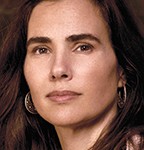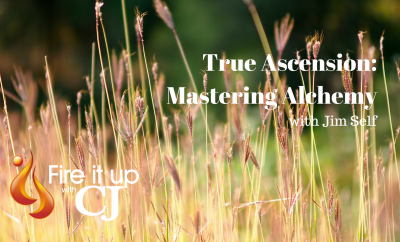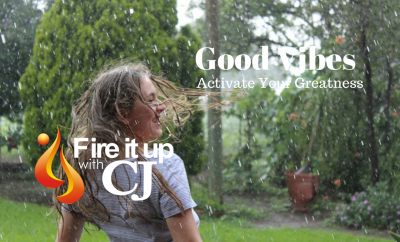
Love & Connection
Self-Compassion: The proven power of being kind to yourself
Why is it so important to be self-compassionate and give yourself the same caring support you’d give to a good friend when you make mistakes or fail? Learn from one of the leading pioneers in the field of self-compassion and author of “Self-Compassion- The Proven Power of Being Kind to yourself”, Professor Kristin Neff from University of Texas – Austin, about self-compassion and how to use it the next time you are about to judge or criticize yourself.
Show Summary
Blog Post by our Guest
Self Compassion
Embracing Our Common Humanity With Self-Compassion
Sadly, however, most people don’t focus on what they have in common with others, especially when they feel ashamed or inadequate. Rather than framing their imperfection in light of the shared human experience, they’re more likely to feel isolated and disconnected from the world around them when they fail. When we focus on our shortcomings without taking the bigger human picture into account, our perspective tends to narrow. We become absorbed by our own feelings of insufficiency and insecurity. When we’re in the confined space of self-loathing, it’s as if the rest of humanity doesn’t even exist. This isn’t a logical thought process, but a type of emotional tunnel vision. Somehow it feels like I am the only one who is being dumped, proven wrong, or humiliated.
And even when we’re having a painful experience that is not our fault — perhaps we’ve been laid off from our job because of the economic downturn, for instance — we often irrationally feel that the rest of the world is happily employed while it’s only me sitting at home watching re-runs all day. Or when we become seriously ill, we may feel like sickness is an abnormal state that “shouldn’t” be happening. (Like the dying 84-year-old man whose final words were “Why me?”) Once we fall into the trap of believing that things are “supposed” to go well, we tend to think something has gone terribly amiss when they suddenly don’t. Again, this isn’t a conscious thought process, but a hidden assumption that colors our emotional reactions. If we were to take a completely logical approach to the issue, we’d consider the fact that there are thousands of things that can go wrong in life at any one time, so it’s highly likely — in fact inevitable — that we’ll experience hardships on a regular basis. But we don’t tend to be rational about these matters. Instead, we suffer, and we feel all alone in our suffering.
The recognition of common humanity entailed by self-compassion also allows us to be more understanding and less judgmental about our inadequacies. Our thoughts, feelings and actions are largely impacted by factors outside of our control: parenting history, culture, genetic and environmental conditions, as well as the demands and expectations of others. After all, if we had full control over our behavior, how many people would consciously choose to have anger problems, addiction issues, debilitating social anxiety, an eating disorder? Many aspects of ourselves and the circumstances of our lives are not of our intentional choosing, but instead stem from innumerable factors that our outside our sphere of influence. When we acknowledge this reality, failings and life difficulties do not have to be taken so personally.
As Einstein once said:[1]
A human being is part of the whole, called by us ‘universe,’ a part limited in time and space. He experiences himself, his thoughts and feelings, as something separate from the rest — a kind of optical delusion of consciousness. This delusion is a kind of prison for us, restricting us to our personal desires and to affection for a few persons nearest to us. Our task must be to free ourselves from this prison by widening our circle of compassion to embrace all living creatures and the whole of nature in its beauty.
To learn more about self-compassion you can visit my website at www.self-compassion.org. There are informational videos, research articles demonstrating its benefits, a way to test your own self-compassion level, and a variety of exercises and guided meditations. You can also read more about self-compassion in my book “Self-Compassion: Stop Beating Yourself Up and Leave Insecurity Behind,” William Morrow, 2011.
References
1. Quote taken from Dear Professor Einstein: Albert Einstein’s Letters to and from Children, Alice Calaprice (Ed.), Princeton University Press, 2002.
For more by Kristin Neff, click here.
For more on emotional wellness, click here.
Resources
About Kristin Neff
 Kristin studied communications as an undergraduate at the University of California at Los Angeles (B.A., 1988). She did her graduate work at University of California at Berkeley (Ph.D., 1997), studying moral development with Dr. Elliot Turiel. Her dissertation research was conducted in Mysore, India, where she examined children’s moral reasoning. She then spent two years of post-doctoral study with Dr. Susan Harter at Denver University, studying issues of authenticity and self- concept development. Her current position at the University of Texas at Austin started in 1999, and she was promoted to Associate Professor in 2006.
Kristin studied communications as an undergraduate at the University of California at Los Angeles (B.A., 1988). She did her graduate work at University of California at Berkeley (Ph.D., 1997), studying moral development with Dr. Elliot Turiel. Her dissertation research was conducted in Mysore, India, where she examined children’s moral reasoning. She then spent two years of post-doctoral study with Dr. Susan Harter at Denver University, studying issues of authenticity and self- concept development. Her current position at the University of Texas at Austin started in 1999, and she was promoted to Associate Professor in 2006.
During Kristin’s last year of graduate school in 1997 she became interested in Buddhism, and has been practicing meditation in the Insight Meditation tradition ever since. While doing her post-doctoral work she decided to conduct research on self-compassion – a central construct in Buddhist psychology and one that had not yet been examined empirically.
In addition to her pioneering research into self-compassion, she has developed an 8-week program to teach self-compassion skills. The program, co-created with her colleague Chris Germer at Harvard University, is called Mindful Self-Compassion. Her book titled “Self-Compassion” was published by William Morrow in April, 2011.
Kristin was recently featured in the best-selling book and award-winning documentary called The Horse Boy – www.horseboymovie.com – which chronicles her family’s adventure with autism.
Kristin Neff
Associate Professor
Human Development and Culture
Educational Psychology Department
University of Texas at Austin
#self-compassion.org, self compassion scale, self compassion meditation, self criticism, self love, self esteem, esteem, self respect, self image, mindfulness, personal skills, personal development, resilence, acts of kindness,kindness, kind, Kristin Neff, dr kristin neff, kristin neff self compassion, self compassion neff, self compassion kristin neff, neff self compassion, self compassion by kristin neff, neff compassion, dr. kristin neff self compassion, kristin neff compassion, compassion, compassion kristin neff, compassion neff, kristin neff auto compassion, judgement, self help, Emotional Intelligence , Common Humanity ,, Emotional Wellness , Emotional Wellness , Empathy , Interdependence ,Self Compassion , Self Esteem , Self-Awareness , Self-Compassion , Spirit , Healthy Living News






